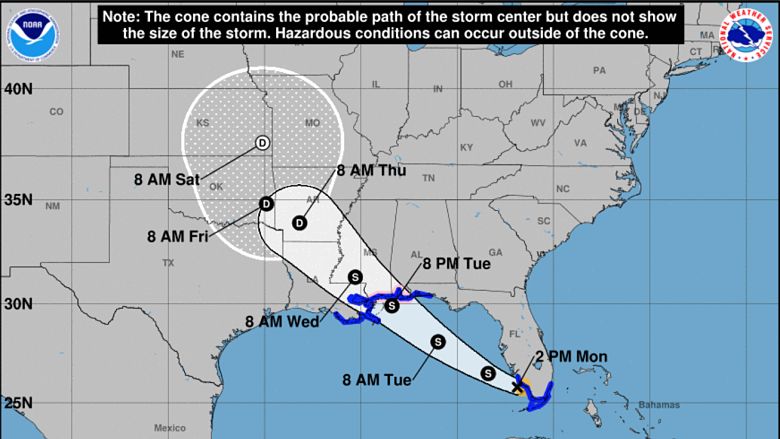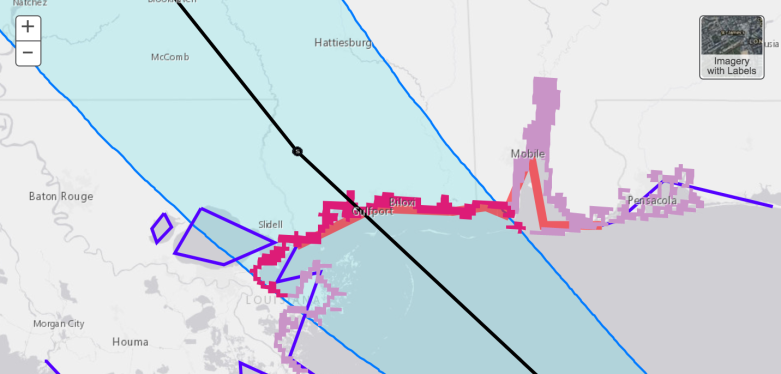
National Hurricane Center
Tropical Storm Gordon has moved into the Gulf of Mexico and is picking up steam as it races toward the gulf coast with winds of 65 mph. The storm is expected to intensify even more, and will likely be a Category 1 hurricane by the time it makes landfall late Tuesday night.
The National Hurricane Center has issued a hurricane warning for Mississippi and Alabama, and a tropical storm warning in the western Florida Panhandle, all the way to central Louisiana.
The latest track for Tropical Storm Gordon shows the system headed for Mississippi, with landfall expected in Gulfport, just west of Biloxi.

Although the eye of the storm won’t pass through Biloxi, some intense weather by way of higher-than-average winds and heavy rains are expected. Wind gusts of 75 mph are possible in areas where the hurricane warning has been issued, while other areas will see gusts of about 40 mph.
“The primary impact will be significant tropical storm force winds across portions of southeast Louisiana and the Mississippi coast by late this afternoon, with hurricane conditions expected in the Hurricane Warning area tonight. Secondary threats are heavy rainfall of 4 to 7 inches with locally higher amounts, and storm surge of 3 to 5 feet, primarily along the Mississippi coast and Lake Borgne, 2 to 4 feet of surge is expected to the mouth of the Mississippi River and 1 to 2 feet along the Louisiana coast to the west of the mouth of the Mississippi River,” reads the latest update on Google Public Alerts.
Wind in Biloxi will begin to pick up around 2 p.m. local time today. Scattered thunderstorms will move through the area beginning around 5 p.m. The worst of the weather will be in the middle of the night, from around 5 a.m. on Wednesday throughout the day. Things should quiet down in the evening hours, with the storm moving through after 9 p.m.
According to ABC News, “inland flooding from Mississippi to Arkansas could be catastrophic.”